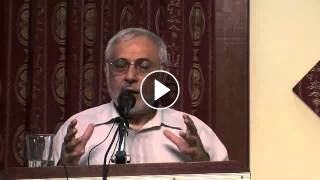



The Qur’an and the Prophet’s Sunnah and Seerah are the fundamental sources of knowledge for all Muslims. The Qur’an is the eternal source of guidance revealed to the noble messenger of Allah (saws) who then demonstrated it by his practical example. Thus the Qur’an and the Prophet’s Sunnah and Seerah form an integrated model for Muslims to emulate in life.
How the Prophet (saws) acquired and exercise power is an aspect of the Sirah that has not been properly studied by Muslims. There is need to look at both the soft and hard power dimensions of the Sirah. Muslims celebrate the birthday of the noble Messenger of Allah (pbuh) in the month of Rabi‘ al-Awwal. These often include na‘at and nasheed recitals. Lectures, if included, narrate the miracles he performed. There is, however, seldom any discussion of the power dimensions in the Sirah as part of his life-struggle. Zafar Bangash, Director of the Institute of Contemporary Islamic Thought, discusses some of these issues.
I would like to begin by thanking the hosts of tonight’s event by placing me upfront thereby trying to satisfy you and me that they are giving me extra time. Where it’s only half-an-hour whether I am upfront or at the end of the list it doesn’t matter, I’ll try to add another few minutes without trying to be inconsiderate of the other speakers who will follow me.
This month - Rabi al-Awwal in the Hijri calendar - sees celebrations of the birth of the Prophet (saw) all over the Muslim world. In this article, ZAFAR BANGASH, Director of the Institute of Contemporary Islamic Thought (ICIT), discusses some key elements of the Seerah.
Muslims can take comfort in the fact that their present state of powerlessness is not a permanent condition; circumstances can and do change...
In political science, power is defined as the ability to achieve a desired outcome; to translate’s one will into reality. Power is recognised as having various aspects, which theorists have described in various ways. Some distinguish between the "power to do" something and "power over" others...
The future of the Islamic Revolution in Iran is currently the subject of some debate. Here we publish an abridged extract from DR KALIM SIDDIQUI’s paper ‘Error, deviation, correction and convergence in Muslim political thought’ (1989), on the political thought of Imam Khomeini which underpinned the Revolution.
Imam Muhammad al-Asi is a Research Fellow of the ICIT. He is also elected Imam of the Islamic Centre in Washington DC. He presented this paper at the International Seerah Conferences convened by the ICIT in Colombo, Sri Lanka (June 16-18, 2000) and Karachi, Pakistan (June 25, 2000).
This paper was first presented by Imam Muhammad al-Asi at the Kalim Siddiqui Memorial Seminar in London in October 1998. It was then published in: The Seerah: A Power Perspective by Imam Muhammad al-Asi and Zafar Bangash, The Institute of Contemporary Islamic Thought, Toronto, London, 2000.
This paper was written by Dr Kalim Siddiqui just before his untimely death in April 1996. It was published in 1998 by the Institute of Contemporary Islamic Thought (ICIT), Toronto and London, inviting Muslim scholars, academics and activists to work on the Seerah of the noble Messenger (saws) from this new, analytical perspective rather the mere descriptive approach hitherto taken with Seerah studies.

